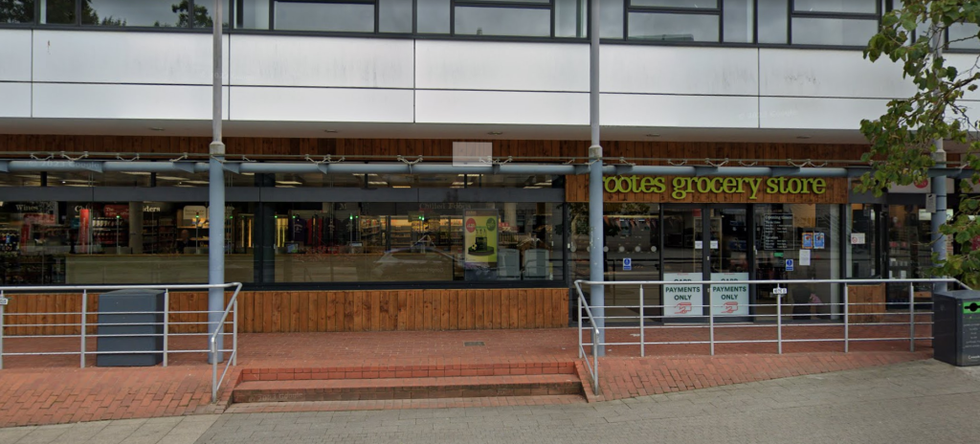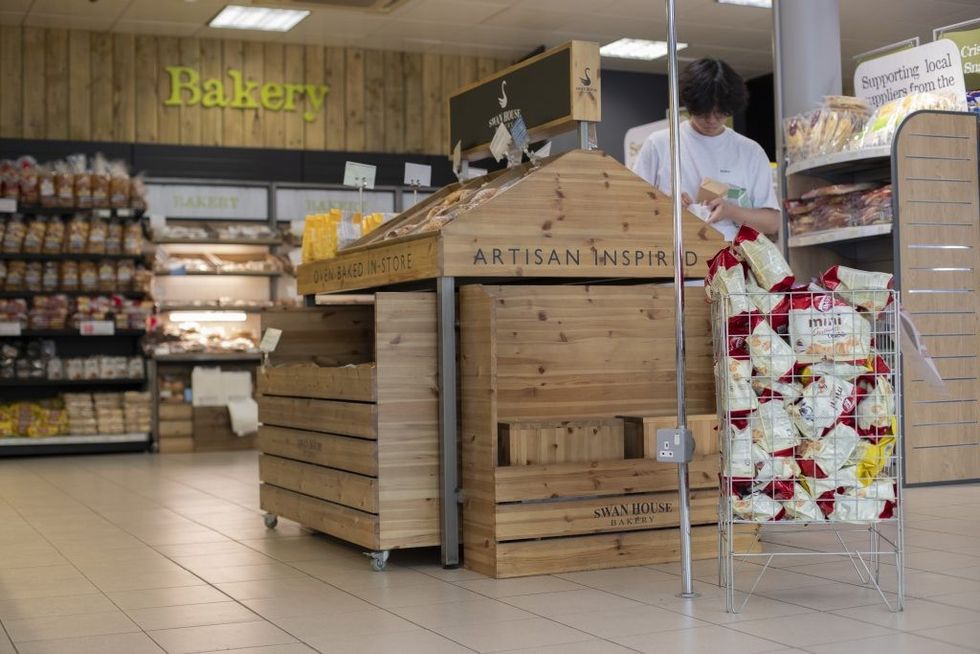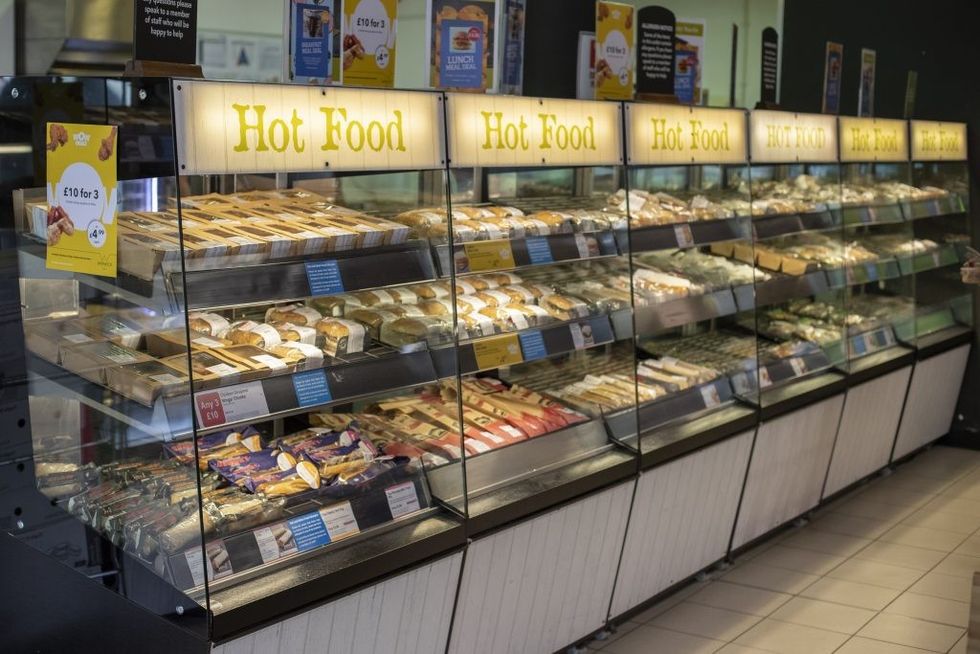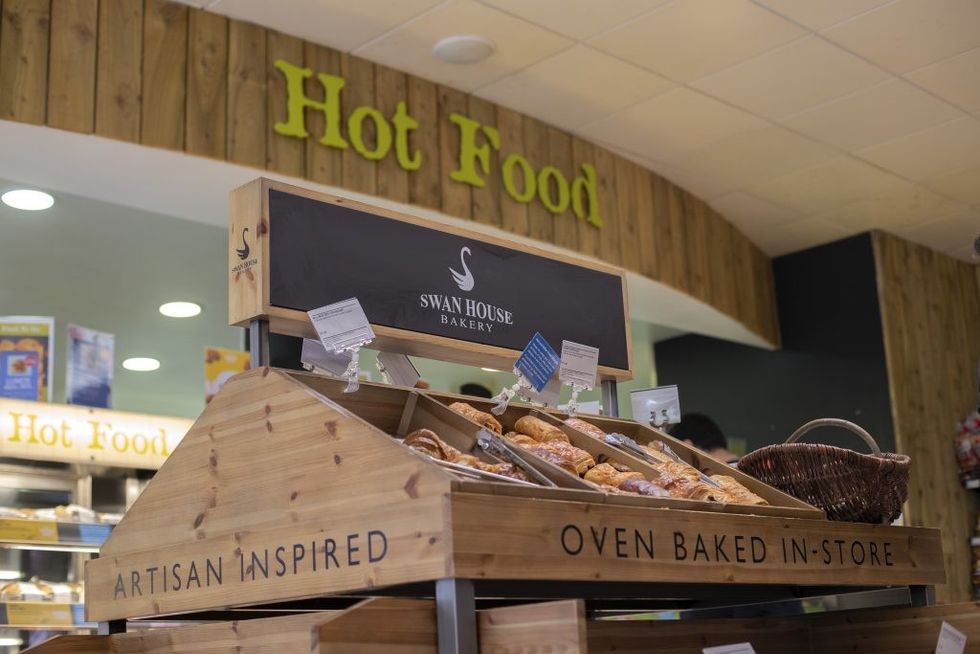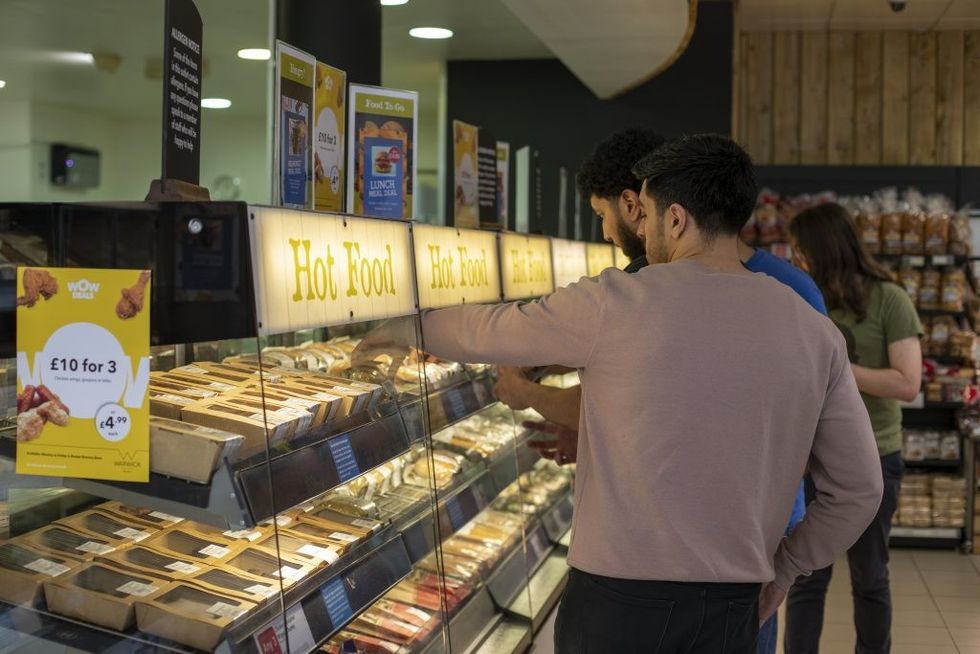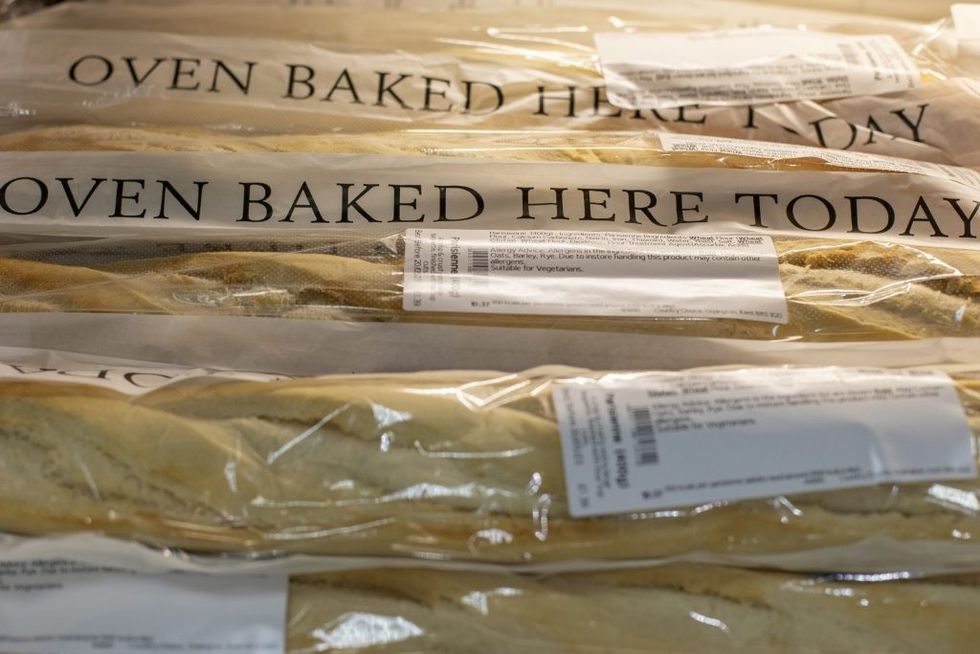Fabio Finocchiaro put down sturdy ‘Rootes’ when he arrived in the UK from Italy last century to work in grocery, and now he is the twice-winning Asian Trader Baker supreme
From a holiday visitor to a celebrated retail manager, Fabio Finocchiaro has carved a niche for himself and the store he manages, Rootes Grocery Store at the University of Warwick, twice winning the prestigious Bakery Retailer of the Year at the Asian Trader Awards.
“The entire operation in the bakery has been growing and growing. And we won twice with Asian Trader. We won in 2017, and again, we won it last year. Really proud of that. It was a great honor to receive the award,” he says.
Fabio’s journey at Warwick began in 1998 when he and his wife Georgia visited the UK to see Georgia’s mother. They were living in Italy at the time, but circumstances led them to extend their stay. “We came here on holiday in 1998 to see Georgia’s mom. Georgia was pregnant, and her mom wasn’t having a great time, so we decided to stay a bit longer,” Fabio recalls.
During this period, Fabio, who was already working in retail in Italy, explored job opportunities here. He stumbled upon a position at the University of Warwick and, after a lengthy interview process, was offered the job. “We sold our house, left our jobs in Italy, and moved over here,” he explains.
Starting as a shop floor manager, Fabio’s hard work and dedication quickly saw him rise to the position of assistant manager, and eventually, the manager of Rootes Grocery Store. Over his 26-year tenure, Fabio has witnessed and driven significant changes and improvements in the store. He speaks with pride about his team, many of whom have been with him all these years. “Adam started here at 16 and is now 31 and the assistant manager. It’s a great story, and I’m very proud of what we’ve achieved over the years,” says Fabio.
A multicultural store
With over 29,000 students and thousands of staff members, Warwick University is essentially a “town within a town”. As well as a diverse mix of national and international students, the store’s customer base includes university staff and visitors, and the 7,000 sq ft store, located at the heart of the campus, is known for its diverse range of products, including Oriental and world foods. “Our strength is the international food and the food to go,” Fabio highlights.
Despite strong competition from nearby Tesco and Aldi stores and the rise of online shopping, Rootes Grocery Store has carved out a unique position. The store’s ability to quickly adapt and introduce new products, especially ethnic foods, has been a key differentiator. “The foods from Asia, from India or China or Taiwan, students can recognise their labels, which gives us strength against Tesco because they cannot move as fast as we do,” he notes.
One of the cornerstones of Rootes Grocery Store’s success is its bakery, comprising over 100 bakery lines – with 12 different varieties of bread, 30 varieties of pastries and a full range croissants and breakfast foods.
The freshly-baked range is enticingly displayed across 1500 square feet of space in the store to maximise sales and there is an intoxicating, aromatic “bakery go to” feel when you walk in the store. Their wide bread selection is arrayed on a huge five-shelf display stand on the wall, starting at the bottom with freshly-baked baguettes, pasties, sausage rolls and savouries, more than 12 flavours and types of doughnuts and over 30 different breakfast foods including croissants, almond croissants, pains au chocolat and cinnamon swirls.
Popular items include sausage-rolls and burgers, which sell in the thousands daily. “The more you cook, the more you sell,” Fabio explains, noting that the bakery alone generates a weekly turnover of around £40,000 during term time, when the store sees a weekly footfall of around 37,000 customers!
They offer a full range of authentic Indian curries from a local supplier, Trishaz Treat, selling it hot through the bakery and cold in store as ready meal to take home. The partnership with Country Choice has also been instrumental in adapting to changing market conditions.
“Country Choice allows us a little bit of leverage to introduce different lines, and every now and then we try different things in the bakery. But the vast majority of the food that goes out from the bakery is through Country Choice, which is really vital and extremely important for us,” he explains.
Bread is in high demand and quite successful, “despite all the war against carbs,” he adds, though the preferences have changed.
“It will be baguettes, ciabatta bread, because they don't really go for sliced bread anymore, unfortunately. We used to sell a lot of sliced bread with Hovis, Warburtons. But nowadays we sell just very little compared to what we used to be as generations have moved on,” he notes.
A (hard) day’s night
The bakery operation is a well-oiled machine, starting early in the morning and running until late at night. “We start cooking at six o’clock [with] three members of staff, and we add as the hour goes along. By lunch, we have seven, and that will be the maximum. And then goes down again and we close with two. We cook all day,” Fabio describes.
They prepare a variety of meals for different evenings, mix and match with the chicken pieces and chicken nuggets on a Monday, pizza next day, lasagna for Wednesday and so on and so forth.
“When we stop cooking for the evening, which is by six, there's not really much needed and what was left, we keep it until about eight, and then it gets disposed. Most of the times we don't have much over,” he goes on. “Then we start cooking again. We start cooking for the next day, for example, the donuts, the cookies. We finish by 11 at night with the team.”
Training is rigorous, with strict induction processes and ongoing checks. “We have about 50 modules to go through, starting with food safety and hygiene,” Fabio explains. Permanent staff attain a level three in food hygiene, and even casual student staff undergo comprehensive training.
“We have team leader, Mariana, in charge of the bakery. She will take care of the training and make sure everything is up to scratch, especially with due diligence checks. We're quite strict with that,” he adds.
Feedback and adaptation
For Fabio, customer feedback is the lifeblood of the store. It has driven many of the store’s innovations and adaptations over the years, particularly in the bakery section.
“Feedback in general is vital to us,” Fabio emphasises, “because that's how we started realising that the only way to beat Tesco, Aldi or whatever is just to get unusual products, or what the customer actually cannot find elsewhere.”
Listening to student feedback has been particularly instrumental. Fabio recalls how a student recommendation led to a successful collaboration with Trishaz. “Students were buying on Facebook from his company, and then I got hold of him. We met, had a conversation and we started working together. It works much better for us,” he says.
The store also runs polls through the university to gauge student preferences. “The bakery came out on top with the range and everything we do,” Fabio notes proudly.
Students working in the store have been a vital link in this continuous loop of feedback and adaptation.
“We listen a lot to what students say. It is true, though, that they say one thing one day, probably the opposite the next day, but you have to sift through what they really need. Most of this comes from the students that we employ, from our colleagues. They would tell us what we miss. We also work with the various university societies, the Caribbean society, the Chinese society, and that also gives us an edge and firsthand advice,” he explains.
In the face of rising living costs, the store has positioned itself as a reliable and affordable option for both students and staff. Despite the presence of 19 restaurants and bars on campus, including big names like Starbucks and Pret a Manger, the store’s hot food offerings have remained popular due to their authenticity, affordability, and availability.
“Our sales have gone up. We haven’t felt the cost-of-living crisis,” Fabio reveals. In fact, the economic challenges have somewhat benefitted the store, as more people turn to it for quality meals at reasonable prices.
Fabio attributes this success to a combination of factors: quality, price, availability, and authenticity. “Beluga, Starbucks, and other big names have big prices and not always the best quality,” he explains. “We managed to be more competitive. And we are winning that battle because of quality, price, availability, and, believe it or not, it is as simple as authenticity, which is vital for students that come from abroad.”
Future sustainable
Looking ahead, Fabio is keen on expanding and diversifying the bakery’s offerings, particularly with an eye toward plant-based options. “Society is moving that way,” he notes, acknowledging the growing demand for plant-based foods.
“If you look at the data itself, the amount of plant-based food we sell, which we do have, is really tiny in comparison to the classic sausage rolls or burgers,” he notes. “But that's where we go into, where society is going.”
However, he also recognises the challenges in this area, such as taste and availability. “The main complaint we get is that plant-based foods are just tasteless,” he admits. “And the more we move towards that, I guess, the tastier the lines will be.”
The store is also working closely with Country Choice and Trishaz to develop new lines.
Fabio is exploring ways to extend the bakery’s operating hours and enhance its efficiency. “We need to extend further into the evening while limiting costs,” he says. Despite the logistical challenges, he remains committed to pushing the bakery forward. “It is a jewel. It’s important for us.”
Fabio believes that the bakery will be playing a crucial role in the convenience channel, particularly in offering authentic and diverse products. He sees this trend toward authenticity and diversity as the future of the sector.
“Nowadays, people that move around the world, they want real taste. And I strongly believe that we need to open up to different products, to what is important to people,” he asserts. “Especially nowadays, the stuff that comes from India or China, beautiful food, we need to take advantage of that and offer a better quality range, better quality products in a wider range or specialise.”
Fabio’s success has been built on a deep understanding of his customer base and a willingness to adapt and innovate. He encourages other retailers to do the same, stressing the importance of quality and authenticity in building a loyal customer base.
“Understand your customer and be brave,” he says. “Your customers, if the quality is good, are very open to external influences, especially when it comes to food.”



